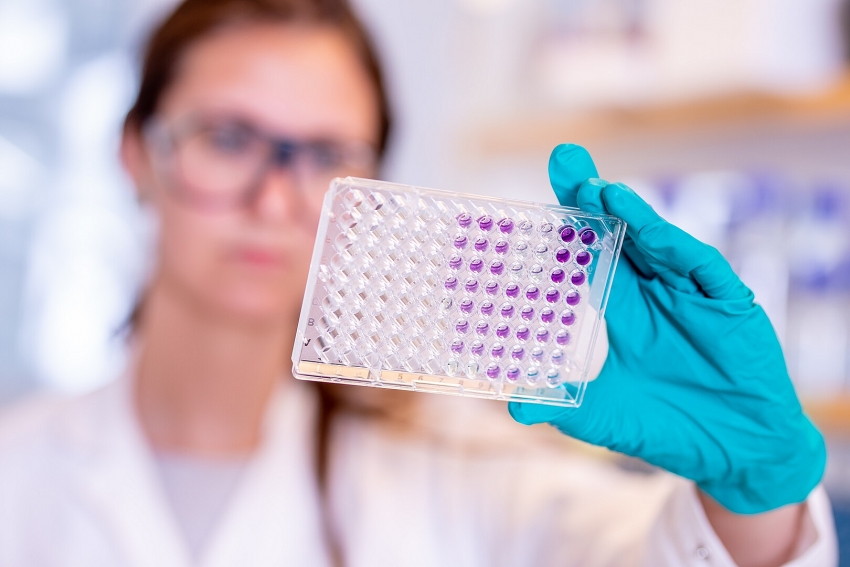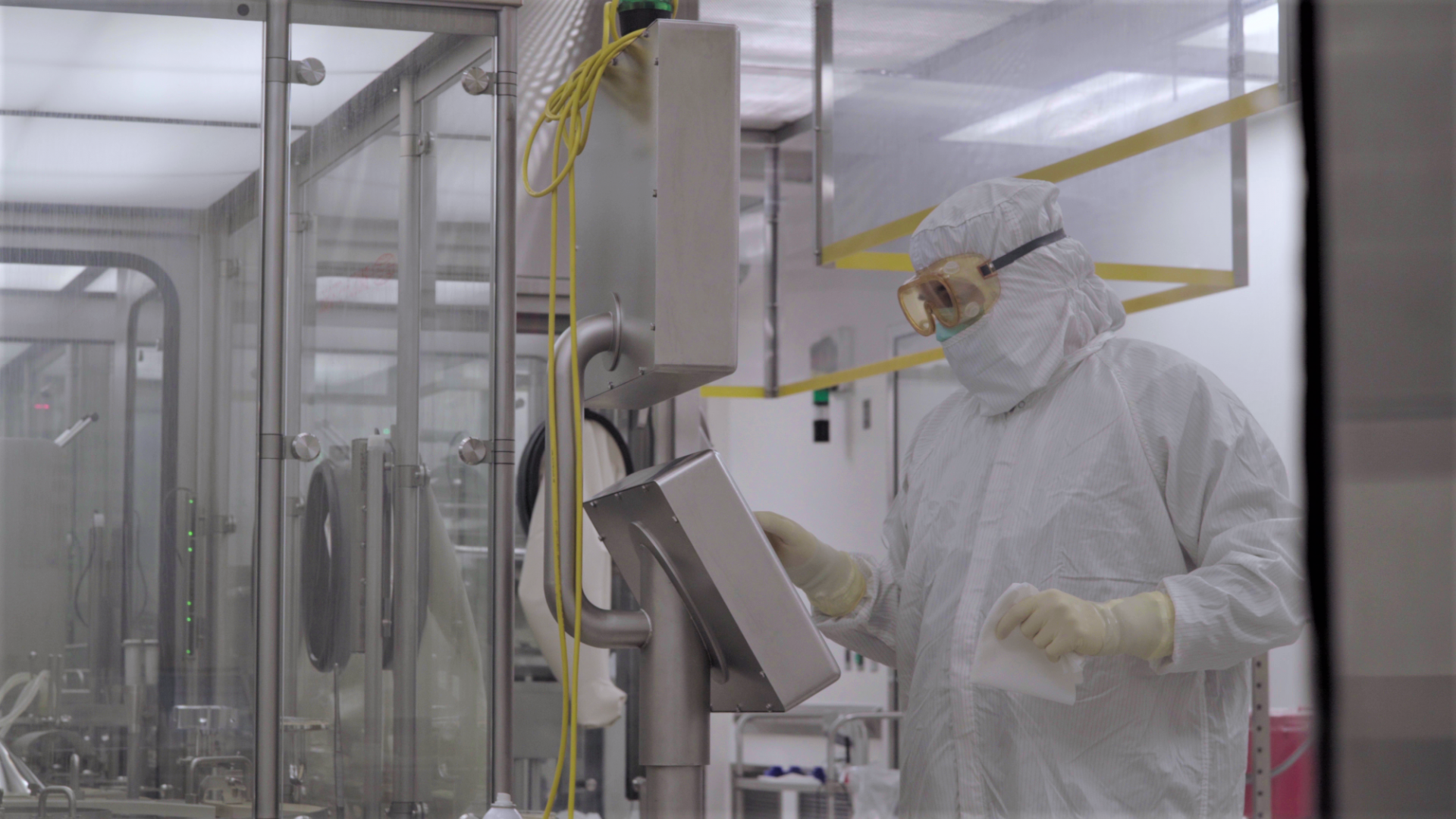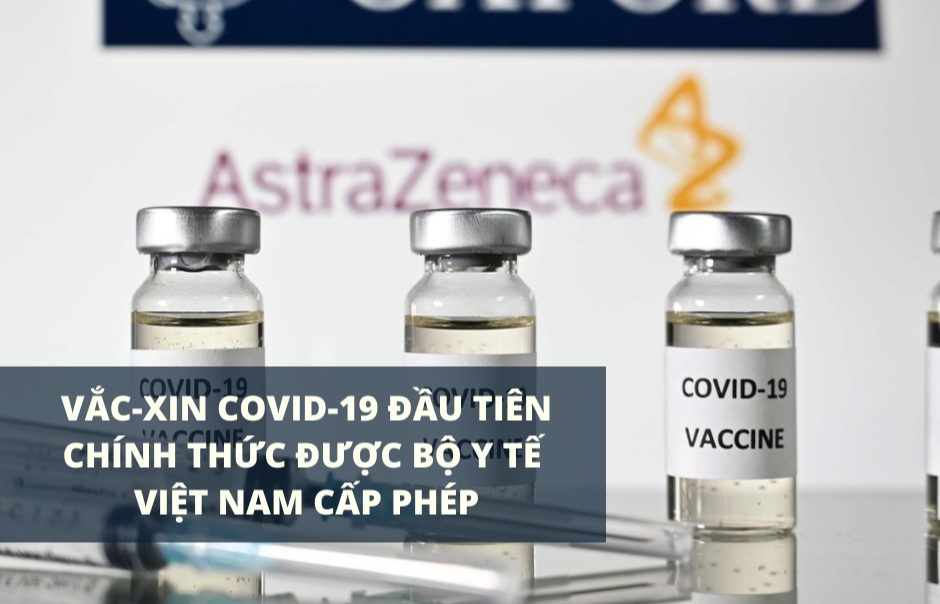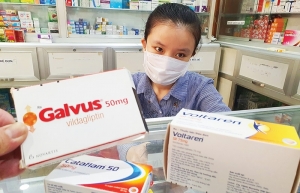COVID-19 Vaccine AstraZeneca safe and effective in primary analysis of clinical trials
 |
| Scientist in a lab |
Results demonstrated vaccine efficacy of 76 per cent (CI: 59-86 per cent) after a first dose, with protection maintained to the second dose. With an inter-dose interval of 12 weeks or more, vaccine efficacy increased to 82 per cent (CI: 63 per cent, 92 per cent).
The analysis also showed the potential for the vaccine to reduce asymptomatic transmission of the virus, based on weekly swabs obtained from volunteers in the UK trial. The data showed that PCR positive readings were reduced by 67 per cent (CI: 49 per cent, 78 per cent) after a single dose, and 50 per cent (CI: 38-59 per cent) after the two-dose regimen, supporting a substantial impact on transmission of the virus.
The primary analysis for efficacy was based on 17,177 participants accruing 332 symptomatic cases from the Phase III UK, Brazil, and South Africa trials led by Oxford University and AstraZeneca, a further 201 cases than previously reported.
 |
| Production and manufacture facility |
Sir Mene Pangalos, executive vice president, BioPharmaceuticals R&D, said: “This primary analysis reconfirms that our vaccine prevents severe disease and keeps people out of hospital. In addition, extending the dosing interval not only boosts the vaccine’s efficacy but also enables more people to be vaccinated upfront. Together with the new findings on reduced transmission, we believe this vaccine will have a real impact on the pandemic.”
Professor Andrew Pollard, chief investigator of the Oxford Vaccine Trial, and co-author of the paper, said: “These new data provide an important verification of the interim data that has helped regulators such as the MHRA in the UK and elsewhere around the world to grant the vaccine emergency use authorisation. It also helps to support the policy recommendation made by the Joint Committee on Vaccination and Immunisation for a 12-week prime-boost interval, as they look for the optimal approach to roll out, and reassures us that people are protected 22 days after a single dose of the vaccine.”
Data will continue to be analysed and shared with regulators around the world to support their ongoing rolling reviews for emergency supply or conditional approval during the health crisis. AstraZeneca is also seeking Emergency Use Listing from the World Health Organization for an accelerated pathway to vaccine availability in low-income countries.
The vaccine can be stored, transported, and handled at normal refrigerated conditions (28 degrees Celsius/36-46 degrees Fahrenheit) for at least six months and administered within existing healthcare settings.
AstraZeneca continues to engage with governments, international organisations, and collaborators around the world to ensure broad and equitable access to the vaccine at no profit for the duration of the pandemic.
COVID-19 Vaccine AstraZeneca, formerly AZD1222
COVID-19 Vaccine AstraZeneca was co-invented by the University of Oxford and its spin-out company, Vaccitech. It uses a replication-deficient chimpanzee viral vector based on a weakened version of a common cold virus (adenovirus) that causes infections in chimpanzees and contains the genetic material of the SARS-CoV-2 virus spike protein. After vaccination, the surface spike protein is produced, priming the immune system to attack the SARS-CoV-2 virus if it later infects the body.
In addition to the programme led by Oxford University, AstraZeneca is conducting a large trial in the US and globally. In total, Oxford University and AstraZeneca expect to enrol up to 60,000 participants globally.
The AstraZeneca COVID-19 vaccine has already been granted a conditional marketing authorisation or emergency use in close to 50 countries, spanning four continents including in the EU, a number of Latin American countries, India, Morocco, and the UK.
AstraZeneca (LSE/STO/Nasdaq: AZN) is a global, science-led biopharmaceutical company that focuses on the discovery, development, and commercialisation of prescription medicines, primarily for the treatment of diseases in three therapy areas – oncology, cardiovascular, renal and metabolism, and respiratory and immunology. Based in Cambridge, UK, AstraZeneca operates in over 100 countries and its innovative medicines are used by millions of patients worldwide.
AstraZeneca has been active in Vietnam since 1994 and runs numerous collaborations with the Vietnamese Government and healthcare partners to promote better health and sustainability. Amongst them are the Healthy Lung Programme to improve the quality of outpatient management of asthma, COPD and lung cancer; Young Health Programme to prevent and reduce NCD risk behaviours amongst young people; and Green Energy for Health programme to donate solar energy systems to local health facilities. AstraZeneca is also collaborating with the World Economic Forum and London School of Economics in the Partnership for Health System Sustainability and Resilience (PHSSR), of which Vietnam is the only Asian country in the pilot phase, to strengthen and make sure health systems will be crisis-resistant.
 COVID-19 vaccine AstraZeneca conditionally authorised for emergency use in Vietnam COVID-19 vaccine AstraZeneca conditionally authorised for emergency use in Vietnam |
 AstraZeneca licenses first COVID-19 vaccine in Vietnam AstraZeneca licenses first COVID-19 vaccine in Vietnam |
 Pharma groups redouble patient-centric efforts Pharma groups redouble patient-centric efforts |
What the stars mean:
★ Poor ★ ★ Promising ★★★ Good ★★★★ Very good ★★★★★ Exceptional
Themes: Healthcare Platform
- Opella and Long Chau join forces to enhance digestive and bone health
- Hanoi intensifies airport monitoring amid Nipah disease risks
- Cosmetics rules set for overhaul under draft decree
- Policy obstacles being addressed in drug licensing and renewal
- Sanofi, Long Chau Pharmacy relaunch medicine blister pack collection initiative
Related Contents
Latest News
More News
- MAE names big 10 policy wins in 2025 (February 06, 2026 | 08:00)
- US firms deepen energy engagement with Vietnam (February 05, 2026 | 17:23)
- Vietnam records solid FDI performance in January (February 05, 2026 | 17:11)
- Site clearance work launched for Dung Quat refinery upgrade (February 04, 2026 | 18:06)
- Masan High-Tech Materials reports profit: a view from Nui Phao mine (February 04, 2026 | 16:13)
- Hermes joins Long Thanh cargo terminal development (February 04, 2026 | 15:59)
- SCG enhances production and distribution in Vietnam (February 04, 2026 | 08:00)
- UNIVACCO strengthens Asia expansion with Vietnam facility (February 03, 2026 | 08:00)
- Cai Mep Ha Port project wins approval with $1.95bn investment (February 02, 2026 | 16:17)
- Repositioning Vietnam in Asia’s manufacturing race (February 02, 2026 | 16:00)

 Tag:
Tag:
























 Mobile Version
Mobile Version